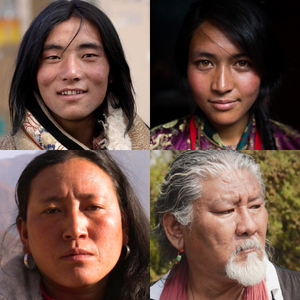Winja people: Difference between revisions
Jump to navigation
Jump to search
(Created page with "category:Ethnic groups of Loulan {{Infobox ethnic group | group = Winja | native_name = ''Winja''{{ref|a}} / ''Wenja''{{ref|b}}<br>溫加 | native_name_l...") |
No edit summary |
||
| Line 42: | Line 42: | ||
They are a patriarchal agricultural society and adhere predominantly to traditional tribal religions or to {{wpl|Buddhism}}. | They are a patriarchal agricultural society and adhere predominantly to traditional tribal religions or to {{wpl|Buddhism}}. | ||
==History== | |||
===Origin=== | |||
===Ming dynasty=== | |||
===Qing dynasty=== | |||
===Modern era=== | |||
==Culture== | |||
===Clothing=== | |||
===Music=== | |||
==Language== | |||
==Genetics== | |||
Revision as of 23:20, 10 May 2019
 | |
| Total population | |
| 173,014 (2015) | |
| Regions with significant populations | |
| 149,010 | |
| 23,997 | |
| Languages | |
| First language Winja Second language Mandarin, Tokhari | |
| Religion | |
| Folk religion, Bon, Buddhism | |
^ Northern dialect ^ Sorthern dialect | |
The Winja people (Winja or Wenja; Mandarin: 溫加 wēnjiā) are an Indo-European ethnic minority group in China and Loulan who largely speak the Wenja language.
The Winja numbered about 149,010 people in the 2010 Chinese census, living mostly in Qinghai and Gansu provinces. An additional 23,997 reside in southeastern Loulan, where they number about 23,997 and where their language enjoys a protected minority status.
They are a patriarchal agricultural society and adhere predominantly to traditional tribal religions or to Buddhism.